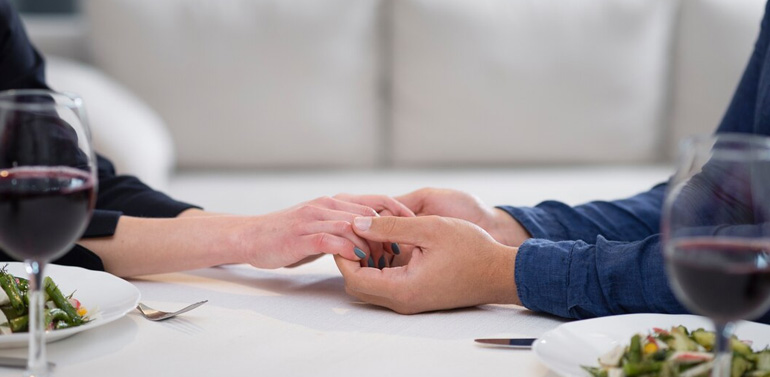Marriage Counselling

22
Mar
When is the Right Time to Go for Marriage Counselling?
No marriage is ‘perfect’. A good marriage requires a lot of understanding, trust, acceptance, willingness to learn from each other and to lean on each other without being overly needy. Unlike other relationships, married couples tend to communicate with each other more often and there are more chances of differences of opinions and attitudes becoming noticeable. A marriage relationship is a constant work-in-progress, and requires active involvement from both the parties.
What is Couple Counselling or Marriage Counselling?
Conflicts that arise between couples are sometimes resolved by themselves. If conflict persists and it creates a lot of stress for the couple, solving it may need external intervention.
Marriage counselling helps the couple to understand each other better, resolve their conflicts, and improve their relationship. It is different from premarital counselling, which is more of a preparation to enter into the marital relationship and helps set basic expectations from the relationship. The marital relationship counselling is conducted by a relationship therapist or a psychologist skilled in marriage counselling.
When Should You Go For Marriage Counselling?
When you think that differences between your spouse and you are not getting resolved among yourselves or even with intervention from close friends and family, and that the differences are causing you distress, lack of caring for each other or a breakdown in communication, you should look to an expert to help you. Continuing to ignore the distress only results in undue stress, tension, sadness, worry, fear and other problems, further leading to physical or psychological problems like depression.
Some of the typical issues for which married couples seek counselling are communication issues, infidelity, differences in culture / outlooks / upbringing / social standing affecting life together, financial issues, sexual difficulties, conflicting approaches to child-bearing and child rearing, significant life changes like a job change or retirement, or changes in the financial situations of either of the spouses.
Stages of Couple Counselling / Marital Counselling in Psychology
The three main stages followed in marriage counselling have been broadly discussed here. Each couple is unique and their problems may also have no similarity to others. Emotionally focused therapy offered by a trained therapist or psychologist is the best way to identify the issues correctly and gather solutions to the problems.
Stage 1 - Defining the Problem
By exploring and examining the issues and challenges faced by the couple, the marriage psychologist will be able to clearly understand the problems that need to be resolved for the couple to have a healthy relationship. The process of defining the problem is time consuming, sometimes taking several weeks or months. By being open and honest with each other and the therapist, the couple will be able to speed up the process.
Stage 2 - Developing Empathy
Keeping their personal perspectives aside, the couple is encouraged to actively listen to and think from the other person’s point of view. When the couple is experiencing conflict and are bound by their individual habits, emotions and way of looking at and doing things, this could be the most difficult stage to overcome. The amount of willingness shown by the couple would determine how long they remain in this stage. By truly empathising with each other, they will be able to develop a better understanding and solutions start to become more visible. It also becomes easier to recognize anything that needs to change from your side to help make the marriage work better.
Stage 3 - Taking Action
By this stage, each person would have understood what he / she needs to do for themselves in terms of their own self-care. Only by taking care of themselves will they be able to invest in the relationship wholeheartedly. Once the likelihood of a positive outcome is seen, the couple may be asked to undertake activities together for better communication between themselves and seeking out fun and joy while being in each other’s company and rediscovering the other person.
When Is Marriage Counselling Effective?
For marital counselling to be effective, couples need to make it a priority, set aside time for the sessions, and focus on themselves and what it takes to strengthen their relationship. They need to be willing to openly and honestly communicate with each other, bring out their differences to the table and look to work on them. The reason why counselling is important is because the therapist or the counsellor assumes the role of a mediator between the spouses and guides and facilitates healthy and effective communication, particularly when the couple are unsure about how to go about doing so. Marriage counselling can help provide a realistic picture of the couple’s relationship and of who each partner actually is (as opposed to what the spouse expects them to be). The awareness and mutual respect of the other partner’s desires and motivations is important so that there is no misunderstanding or miscommunication among them. Having a qualified counselling expert as mediator also helps make the couple be more accountable to each other and more willing to learn new tools to make the relationship better.
While a marriage counsellor or therapist can help you work on the relationship, whether the counselling is a success or not depends solely on the actual couple and their willingness and effort on saving the relationship.


Leave a Comment